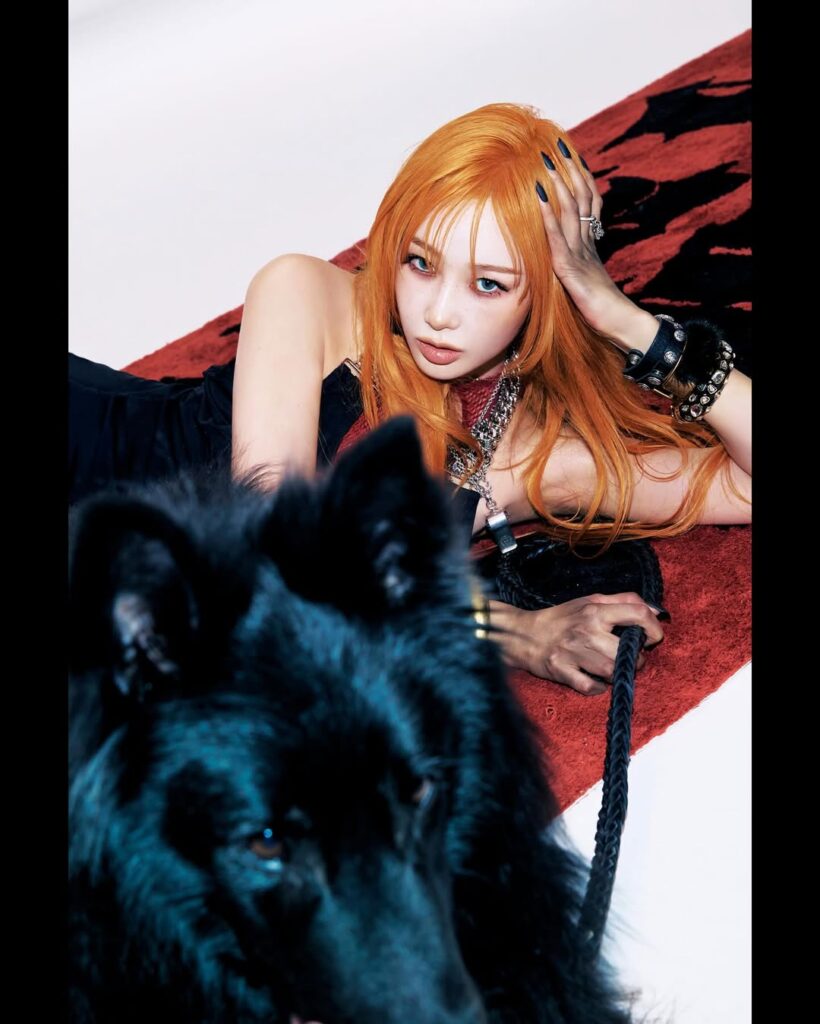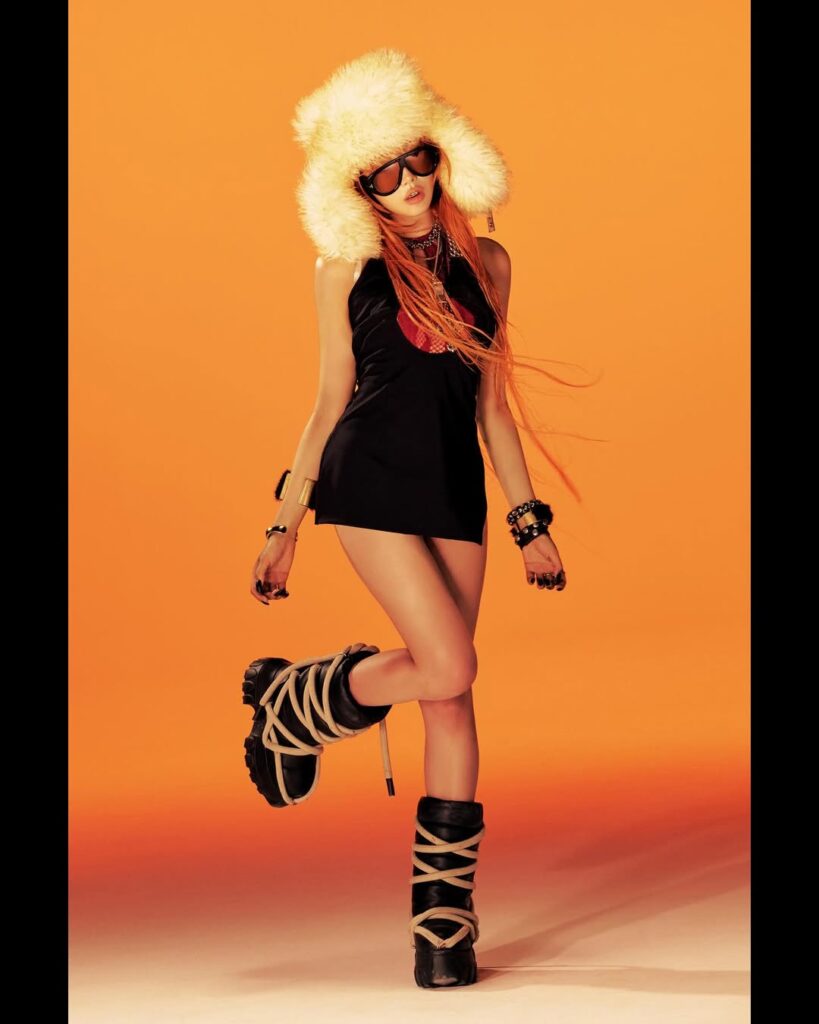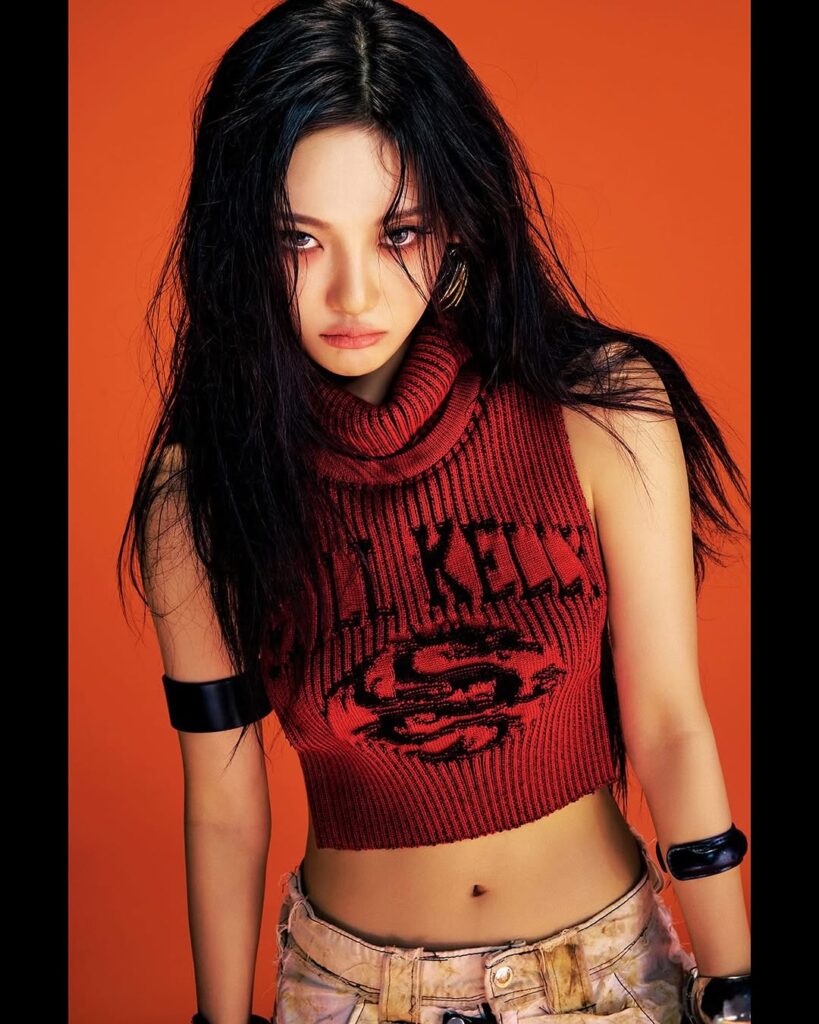aespa is back, and they’re not here to play nice. With their explosive new single “Dirty Work,” the quartet is launching a bold continuation of their ever-evolving sound and story. Just weeks after the success of their full-length album “Armageddon,” they return with a sonic grenade — a track that not only challenges expectations but also deepens their role as one of K-pop’s most dynamic and genre-defying groups.
In this deep-dive, we’ll explore the background, meaning, musical direction, fan reactions, visual concepts, and the broader cultural impact of “Dirty Work.” Ready? Let’s go.
aespa’s Comeback Blitz: Why “Dirty Work” Matters
Coming hot on the heels of “Armageddon,” “Dirty Work” is more than just a follow-up single — it’s a strategic move that reflects aespa’s new momentum. While most groups space out major comebacks by months, aespa is going full throttle, releasing new music just weeks apart. This is a bold statement. They’re not content to ride the wave of their previous success. They’re building a new one.



“Dirty Work” represents a bridge between the cinematic, apocalyptic soundscape of “Armageddon” and a more grounded, personal narrative. It’s the kind of comeback that dares to ask: What happens when the cyber-goddesses of KWANGYA step into the gritty, real world?
The Sound of Rebellion: Musical Style & Influences
The title itself — “Dirty Work” — sets the tone. It suggests something raw, confrontational, perhaps even morally grey. This isn’t the slick, polished pop aespa debuted with. This is heavier. Grungier. Maybe even messier — in the best possible way.
Sonically, fans are anticipating a mix of bass-heavy beats, grimy synth layers, and experimental rhythm shifts. Think industrial pop meets cyberpunk trap. aespa has always thrived in genre-blending — their past songs moved between hyperpop, EDM, R&B, and hard-hitting hip-hop without ever losing their unique identity. “Dirty Work” promises to push that envelope even further.
Early live previews and teaser clips hint at a confident, attitude-heavy anthem. The lyrics are rumored to revolve around betrayal, power dynamics, and owning your shadows — themes that align perfectly with aespa’s growing narrative complexity.


aespa’s Iron Identity: Evolving from Myth to Reality
Since debuting in 2020, aespa has walked a tightrope between digital myth and musical reality. Their fictional lore — involving virtual avatars, KWANGYA, and AI-like alternate selves — created a mythos rarely seen in mainstream K-pop. But “Dirty Work” seems to pull the girls down from their digital thrones and plant them firmly in the real world.
It’s no longer about fighting evil in a simulation. It’s about navigating betrayal, ambition, and truth in the flesh-and-blood world. This evolution is crucial. It reflects not just aespa’s growth as artists, but also a maturing fanbase who craves more nuanced, grounded storytelling.


Visual Aesthetics: Cyberpunk Meets Street Edge
aespa’s visuals have always been a huge part of their appeal. For “Dirty Work,” the group seems to be trading in their futuristic armor for something more raw and rebellious. Teasers feature dark alleyways, flickering neon signs, leather jackets, metallic makeup, and punk-inspired fashion.
The visual tone is gritty and grounded — but still unmistakably aespa. There’s a “street queen” vibe here: powerful, unapologetic, and dangerously cool. Karina’s fierce gaze. Winter’s icy charisma. Ningning’s commanding presence. Giselle’s lyrical edge. All amplified under a darker, edgier filter.
This shift in styling echoes the message of the song: doing the dirty work means stepping out of the spotlight, getting your hands messy, and embracing the chaos with confidence.
The Lyrics: Power, Betrayal & Taking Control
While the full lyrics haven’t been officially released at the time of writing, the themes are becoming clear through previews and fan discussions. “Dirty Work” appears to revolve around betrayal — possibly by someone close — and the process of taking back control.
Lines are rumored to include references to masks being removed, lies being exposed, and power being seized. It’s not a breakup song in the traditional sense. It’s more like a declaration of independence. A power grab. A warning shot.
The phrase “dirty work” might refer to the emotional labor of cutting toxic ties, or the physical act of fighting your way through a world that doesn’t play fair. It’s bold, cinematic, and deeply relatable — especially for fans who’ve followed aespa’s transformation from rookies to revolutionaries.
Fan Reactions: Shock, Excitement, and Theories Galore
The second “Dirty Work” was announced, social media exploded. aespa fans — known as MYs — immediately began analyzing teasers, tracking down rumored demo leaks, and theorizing about its connection to the aespa lore.
Some popular fan theories include:
“Dirty Work” is a parallel story to “Black Mamba,” showing the other side of the conflict.
The track reflects aespa breaking away from the virtual KWANGYA system — a metaphor for taking creative control.
It hints at solo sub-units or future storyline splits between the girls and their æ-counterparts.
What’s undeniable is the energy. Fans are excited, not just because of the song, but because of what it represents — a new chapter that feels dangerous, risky, and full of potential.
Touring & Global Expansion: aespa Goes Worldwide
aespa is gearing up for their biggest tour yet, and “Dirty Work” is likely to become one of the centerpieces of their live setlist. The timing couldn’t be better. With dates across Asia, the U.S., and potentially Europe, aespa is clearly setting their sights on dominating global stages.
What makes “Dirty Work” tour-friendly is its attitude. It’s the kind of song that hits harder live — with choreo that can be gritty and grounded, vocals that cut deep, and stage effects that lean into the chaos.
aespa’s performances are already known for blending cinematic visuals with high-energy execution. Expect fire, fog, LED tunnels, synchronized drones — whatever it takes to bring “Dirty Work” to life in full 4D spectacle.
Breaking the SM Mold: aespa’s Artistic Identity
SM Entertainment is known for its tight control over group concepts. But aespa has been subtly breaking the mold — and “Dirty Work” might be their loudest rebellion yet.
Rather than sticking strictly to high-concept lore or safe pop structures, aespa is diving into murky territory. Their latest music explores emotional contradictions, moral ambiguity, and raw storytelling — things often reserved for soloists or experimental sub-labels.
This might signal a shift within SM’s strategy. aespa could be carving out a lane that’s more personal, more gritty, and less tightly scripted. If that’s the case, “Dirty Work” could be remembered not just as a hit single — but as a turning point in their career.
Cultural Impact: Why aespa Matters Right Now
In a post-Blackpink, post-ITZY world, the girl group scene is more competitive than ever. New groups debut monthly, but few achieve longevity. aespa’s ability to innovate — musically, visually, conceptually — is what’s keeping them in the global conversation.
With “Dirty Work,” they’re doing more than chasing trends. They’re setting them.
In a time when many K-pop songs lean into retro nostalgia or safe love songs, aespa is exploring grey areas. Power, manipulation, trauma, trust. These are themes you don’t often see tackled with such flair in mainstream pop — let alone by a girl group known for having digital twins.
Their willingness to get “dirty” with their work — to explore the uncomfortable, the intense, the emotionally charged — is what sets them apart.
Looking Ahead: What Comes After “Dirty Work”?
If aespa’s recent pattern continues, “Dirty Work” is just the beginning of another layered comeback series. Fans are already speculating about follow-up singles, video storylines, and even a possible second tour leg in 2026.
Potential developments include:
A mini-album or repackaged version in late 2025
A “Dirty Work” remix EP featuring international artists
Music videos or webtoons expanding the lore
Greater solo content and sub-units
More songwriting credits for the members themselves
Whatever’s next, it’s clear that aespa is in their prime era. They’re taking risks, leveling up, and forcing the industry to keep up with them.
Final Thoughts: The Dirty Work Is Just Beginning
aespa’s “Dirty Work” is more than a comeback single. It’s a creative mission statement. Aesthetic evolution. Lyrical rebellion. It challenges everything from how we view idols to how we define pop music in the digital age.
It’s gritty. It’s ambitious. It’s unapologetic.
And if this is what aespa sounds like when they get their hands dirty — we can’t wait to hear what comes next.







